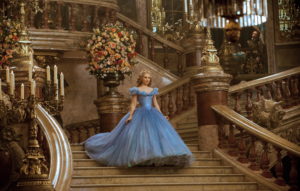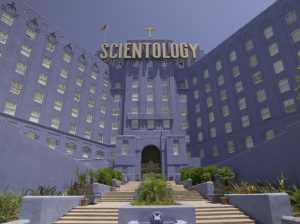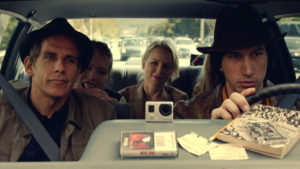Stonewall
Directed by Rolland Emmerich
Written by Jon Robin Baitz
Starring Jeremy Irvine, Johnny Beauchamp, and Vladimir Alexis
Rated R
Let’s get this part over with first: Roland Emmerich, the director of the new film Stonewall as well as the disaster blockbusters The Fourth of July and The Day After Tomorrow, is a dope. After the gay, German-born director learned about the plight of homeless LGBT youth, he decided to make a movie about them, and that movie transmogrified into the story of homeless LGBT youth who helped start the 1969 Stonewall Riots, considered the symbolic, though not actual, beginning of the modern gay rights movement. This wasn’t the dopey part; it’s actually a laudable idea. But Emmerich, used to making studio movies with $200 million budgets, treated his independently financed $17 million film about an iconic moment in both American and queer history like a consumer product. He allowed test audiences – the focus groups of the movie business – to convince him that in order to draw in straight moviegoers that the film’s protagonist should be a fictional white-bread white boy from Indiana who is “straight-acting.” He told Buzzfeed, “I kind of found out, in the testing process, that actually, for straight people, [Danny] is a very easy in. Danny’s very straight-acting. He gets mistreated because of that. [Straight audiences] can feel for him.”
As problematic as “straight-acting” is as a term, it’s still used rather widely by gay and straight people, though certainly not the progressive ones. You’d think that the director of a movie about the Stonewall Riots, which were a response to constant police harassment of LGBT people in New York City who refused to act straight, would be a bit more enlightened. Of course, he focus-grouped a film about a historical event, so maybe enlightenment is not something we should expect from him. Yeah, Emmerich is a dope.
Yes, he deserves a great deal of the criticism he’s had heaped on him. In addition to the test audience filmmaking and the “straight-acting” comment, the movie is not good. It’s ham-fisted, overstuffed, often cloying, and its good parts are easily overshadowed by its dreadful parts (and more on that later). But I can’t agree with the most damning attack: the claim that the film is a white-supremacist text that erases the people of color, femme queens, the transgender people, the butch lesbians, and all of the other not-straight-acting people who started the Stonewall Riots. Simply, that claim is that Stonewall white washes Stonewall. Danny, after all, is shown to throw the first brick of the riots!
I read numerous criticisms of the film that stated that the riots were started by black drag queens, so Danny’s presence and role was a lie. The popular twitter personality Sam Kalidi joked, “If your Grindr profile says ‘No fats, no fems, no Asians, no Blacks, and no guys over 30’ you’ll love Roland Emmerich’s Stonewall.” For Queerty, he posted a photo of three Barbie dolls with “Diana Ross & The Supremes Biopic Directed by Roland Emmerich.” Lady Bunny responded with photo of Anne Hathaway sitting on a bus with the caption, “‘It took one woman sitting down to make a nation stand up.’ ROSA: The Movie, directed by Roland Emmerich.”
Funny, yes. But also wrong. Danny is the proxy for the audience; his experience is meant to introduce the audience to the homeless LGBT kids in Greenwich Village. The white proxy is a tired, cynical trope in films about the Other, and its use is based on close-minded assumption of the demographic of an audience and its inability to empathize. Some proxies are worse than others – think Kevin Costner in Dances with Wolves – but Danny’s failure as a character is more in his spectacular dullness than his ahistoricity. Despite some claims to the contrary, there were a huge number homeless, formerly middle-class gay kids like Danny (though probably more interesting than him) rioting outside the Stonewall Inn that June night. This is clear if you read the historical accounts, from David Carter’s masterful book Stonewall to the narratives of the riots’ veterans. But if you based your knowledge of Stonewall on Facebook memes, which sadly seems to be what many people have done, you’d think that the film has an army of Dannys replacing all of the people of color who were at Stonewall. But that’s not what the movie depicts.
Kicked out of his house for being gay by his wretched football coach father, Danny (Jeremy Irvine) takes the bus to New York and immediately is taken in by Ray, a fem Puerto Rican street prostitute who is usually in some sort of drag. Ray (Johnny Beauchamp) is clearly based on the pioneering transgender rights activist and Stonewall veteran Sylvia Rivera, whose given name was Ray though had been renamed Sylvia by the age that Ray is in the film. Ray is different from Sylvia in some key ways – Sylvia was much more politically aware than Ray, who is more concerned with survival and, unfortunately, her unrequited love for Danny – but it is Ray’s quips of street wisdom, her wise-cracks, and her righteous anger at the world that has rejected, beaten, and spit on her that give Stonewall what little life it has. And Johnny Beauchamp is fantastic as Ray, making her as dynamic and sympathetic as Danny is wooden and dull.
Additionally, while entirely too much of the film follows Danny around on his mopey quest for self-acceptance, two of the best scenes in the film focus on black drag queens. Marsha P. Johnson, played by Otoja Abit, was a legendary figure from Stonewall, and along with Rivera founded the Street Transvestite Action Revolutionaries (STAR), a group that helped homeless trans women and runaways. Johnson is depicted reverentially, as funny and kind, and her flamboyant reaction to her arrest at the Stonewall Inn incites the soon-to-be rioters. And she then gets to sock the evil bar owner Ed Murphy (Ron Perlman) before he escapes; the scene is entirely fictionalized, but it’s satisfying.
Queen Cong (Vladimir Alexis) has the most profound moment in the film. While Danny, Ray, and their friends are being evicted from a filthy SRO, Cong rips down the curtains to create an outfit. Danny is appalled and says, “You just take what you want, don’t you?” Yes, she replies, because she has nothing. And then: “I have not seen one dream come true on Christopher Street, baby. Not one.” This bitter fatalism sets up the anger and frustration to spills into the riots, and Alexis’s delivery is chilling.
Based on the drag queen Zazu Nova, who is credited with sparking the riot along with Johnson and a white hustler named Jackie Hormona, Cong carries a brick in his bag, just in case he wants to smash a store window and steal something. She pulls it out of her bag as the riot begins and Danny takes it from her, trying to stop her from throwing it. (Because Danny is that boring.) But Danny’s erstwhile boyfriend, the creepy assimilationist activist Trevor (Jonathan Rhys Meyers), thinks Danny is going to throw it and tells him not to. Pissed at Trevor’s demanding tone, Danny does throw it, shattering a window above the bar.
This scene enraged me for two reasons. First, after the disastrous response to the film’s very white first trailer led to calls for a boycott of the film, Jeremy Irvine made a point of claiming that Cong “pulls out the first brick of the riot scenes.” I posted his statement on Facebook to argue that the movie was going to be less offensive than the trailer made it out to be. Yes, Cong pulls it out – but Danny throws it! Irvine’s dissembling was both ballsy and bizarre. My jaw dropped in the theater.
Second, while Danny’s brick throwing is not necessarily historically inaccurate – the “first brick” was actually a garbage can and no one knows who threw it – the image of the lame white boy literally stealing a black queen’s agency from her hands is galling. The use of the white proxy can at least be cynically and barely justified by someone who wants straight white folks in middle America to understand the experience of LGBT people, but ripping the symbolic power from Cong, and therefore from Zuza Nova, is when the good will that the depictions of Ray, Marsha, and Cong had built up in me dissolved.
I can understand why Emmerich and screenwriter Jon Robin Baitz (a once-important artist who should know better) had Danny throw the brick. It completes his transformation from naïve bumbler to angry activist, and as the proxy, this could elicit similar feelings in the audience. But Danny doesn’t stay angry. After the riots, he goes to Columbia University and, we’re told, barely visits Ray, Cong, and the rest of group who saved his life. Since Danny is the proxy, then is the audience also supposed to abandon these street kids who started the revolution?
Stonewall’s crime is its cynicism and its great failure is its emphasis on Danny. It is true, as Alex Jung pointed out on Vulture, that Sylvia Rivera and P. Marsha Johnson would be much more interesting and important people to build a film around. (It’s not true, as Jung claims, that Stonewall erases them from “the record.” One bad, clearly fictionalized movie doesn’t have that power.) Luckily, David Francis, who directed the Oscar-nominated ACT-UP documentary How to Survive a Plague, knows that and he has just begun filming Sylvia & Marsha. I do hope that the many people outraged by Stonewall, for both the right and wrong reasons, support the documentary when it arrives, to help show that white proxy theory is hooey. Until then, I hope they pay to see the wonderful comedy about two trans prostitutes in Los Angeles Tangerine, watch the great black lesbian film Pariah on Netflix, buy the DVD of new documentary about Puerto Rican transgender women Mala Mala in November, and, even better, redirect their rage towards passing laws protecting transgender people, pushing for more services and housing for homeless LGBT youth, and supporting the efforts of local LGBT historical societies that are educating the public about our struggle.









